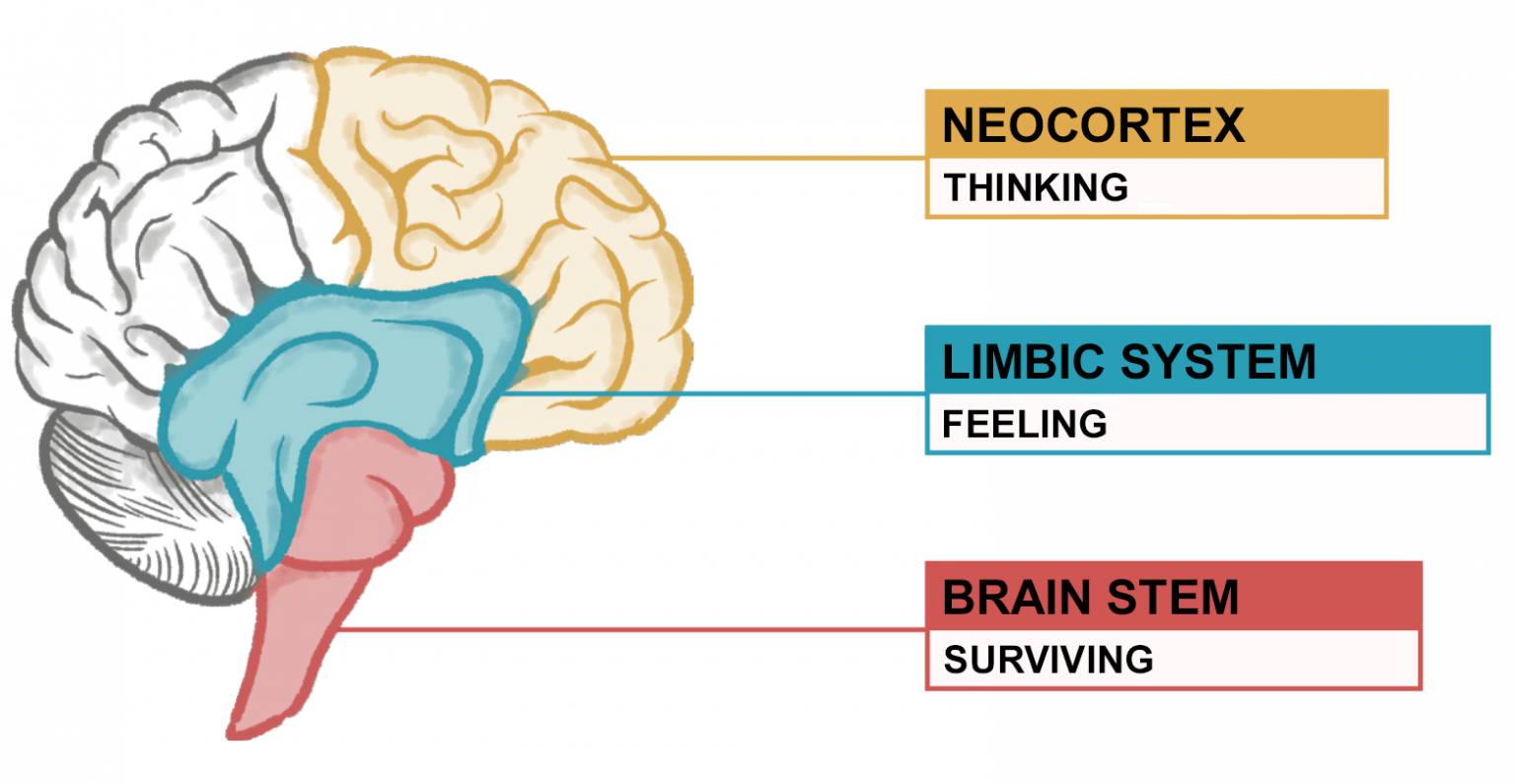Instructor Lee-Anne and I often remark on how some moments, especially tough problem-solving moments, seem to last forever.
It can be scary to let feelings come to the surface because they can seem so all-consuming – tears that might not stop, anger that might not resolve, fear that stops time.
Then we look at the clock and that interminable problem-solving conversation or big cry has lasted... all of four minutes? What's going on?
I felt relief this morning when I remembered the structure of the triune brain. I've talked about this in P.E.T. class because one subject inevitably arises --
Why is it so hard to use these communication skills when I'm feeling a strong feeling?
For starters, it can seem like a lot of the Gordon skills depend on clear verbal interaction – using I-Messages and specific problem-solving steps – but that's not really the case. You can use body language to Active Listen to others, including infants, young children, teens, and adults.
For example, if a toddler is crying, throwing toys, and running away to a corner of the room when you try to engage with them – resisting your attempts to pick them up or speak with them – you can Active Listen verbally by saying something like, "You really don't want to have anything to do with me right now!" and nonverbally Active Listen by sitting down, not facing them, giving them some physical space.
If a baby is feeling overwhelmed and they show it by averting their face from an interaction, giving them some space is Active Listening and responding that you heard them.
In many other situations, we use words. Why are words and feelings so tricky?
The parts of the brain that use language and the parts of the brain responsible for emotion and survival are quite geographically distant. We don't really have one brain, we have three – the reptilian brain, the limbic brain, and the neocortex.

The brain stem, or reptilian brain, handles basic body functions like breathing and sensitivity to heat and cold. Territorial and basic survival responses also come from this brain.
The limbic system handles feelings – and it has no sense of time. This is why emotional moments seem like they last forever.
The neocortex is what makes us human – here we can use language, learn and establish sequences, and handle the kinds of thinking that gets us through modern human life.
The neocortex is powerful but it's also the weak link, in the sense that if there's ever a question of survival and it gets into conflict with the two older brains, it will lose that fight, and thinking goes out the window.
Our emotional brain wins every time, and this is why it's only possible to learn new ways of engaging with our emotions and relationships when we're feeling relatively calm and safe and the neocortex is online.
We actually have more than three brains – the enteric nervous system (gut brain) is another, and even the heart has its own nervous system that is more complex than that of the actual brain. With all these different parts of our bodies and minds competing, no wonder relationships are so complex!
In P.E.T., we learn specific skills for relating even when someone else is "flooded" – when their emotions are so high that their thinking capabilities are temporarily offline. We can restore balance quickly by recognizing this kind of situation and by using the appropriate skill.
And then that seemingly timeless moment of, say, sadness, or frustration, or hopelessness – it can release and ease on down the road.



Member discussion